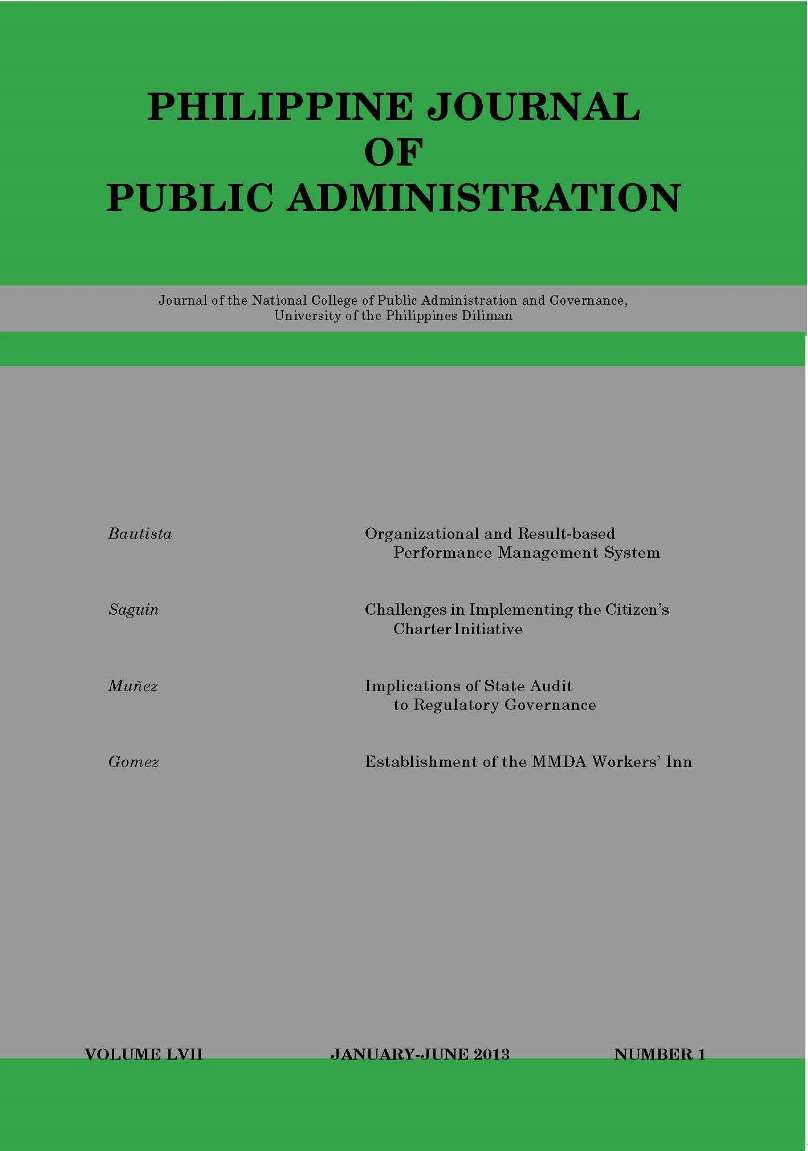Philippine Social Welfare and Development: Institutionalizing Organizational Performance and Result-Based Performance Management System
Abstract
The influence of New Public Management in reforming bureaucracies is manifested in the shifting of government focus from rules and processes to results and outputs, thus, giving premium to the concepts of efficiency and accountability. In the Philippines, part of the national government’s effort to reform public expenditure management is the adoption of a results-based management system through the formulation and implementation of the organizational performance indicator framework (OPIF) and the results-based performance measurement system (RBPMS). Performance measurement, as well as employee motivation, is important in the operationalization of the OPIF as a results-based management approach. This article looks into the strategic value of results management in government agencies’ efforts to attain its development goals. In the case of the Department of Social Welfare and Development (DSWD), the strategic value of a results management framework is to clearly identify the desired development results, intermediate outcomes, and outputs to be produced. The OPIF contributes to the efficient allocation of resources in the DSWD through results-based monitoring and accounting. Areas of strength and improvement in each of the eight phases in the OPIF and RBMS were assessed to identify problems, gaps, and challenges encountered in the conceptualization and implementation of results management in the DSWD.



